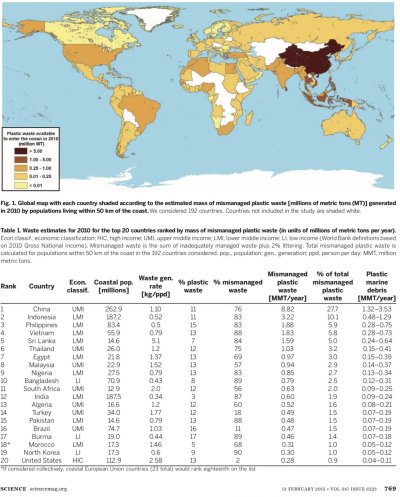Chuckanut
Give me a museum and I'll fill it. (Picasso) Give me a forum ...
A study by the Swiss reveals that collecting and recycling plastic is not a very good idea from an ecological point of view. The better solution is to recover the energy in it by burning it to create electric power.
While I'm not in agreement with draconian penalties for not properly disposing of plastic, I do find the article to be interesting in regards to simply burning used plastic for energy. That might require far less resources than sorting, processing and transporting it all over the world.
https://waste-management-world.com/a/in-depth-why-switzerland-does-not-enforce-plastics-recycling
While I'm not in agreement with draconian penalties for not properly disposing of plastic, I do find the article to be interesting in regards to simply burning used plastic for energy. That might require far less resources than sorting, processing and transporting it all over the world.
https://waste-management-world.com/a/in-depth-why-switzerland-does-not-enforce-plastics-recycling
Our study concludes that the collection of mixed plastic waste does generate a marginal ecological benefit at unreasonably high costs. But plastics recycling is not only inefficient, it is also quite ineffective. In Switzerland, the annual environmental benefit per capita would be equivalent to saving 30 kilometres of car driving or eating one barbecue-steak less.
I do wonder how the cost burning plastic compares to cost of using natural gas to create electricity?Plastics recycling is inefficient and ineffective
In Switzerland, most plastic waste is thermally utilized in municipal solid waste to energy incinerators and not physically recycled.
Last edited:


